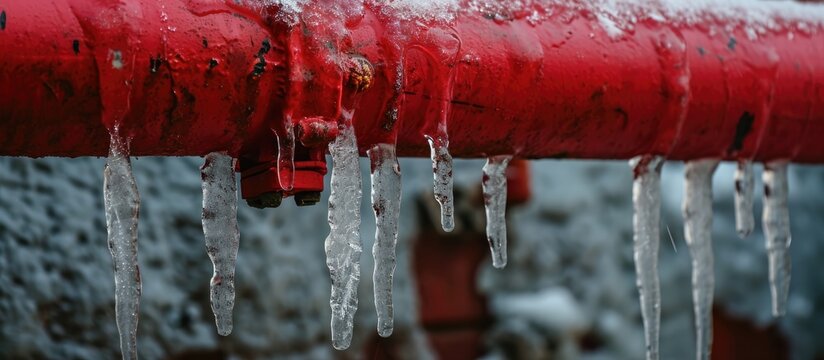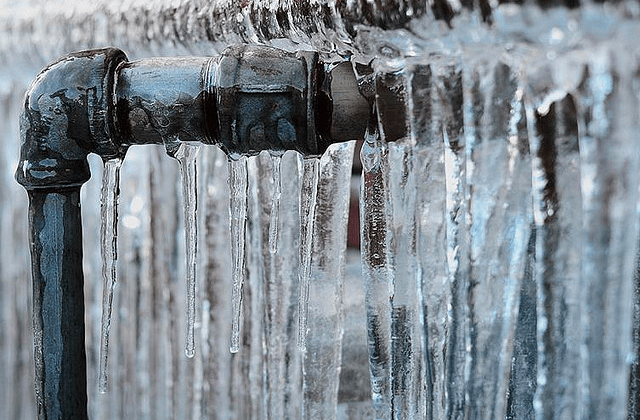Are you hunting for answers concerning How To Avoid Freezing Pipes?

Cold weather can damage your plumbing, specifically by freezing pipelines. Here's how to prevent it from taking place and what to do if it does.
Introduction
As temperature levels drop, the risk of frozen pipelines rises, potentially bring about costly repairs and water damages. Recognizing how to stop icy pipes is essential for property owners in cold environments.
Avoidance Tips
Shielding susceptible pipes
Wrap pipelines in insulation sleeves or utilize warm tape to safeguard them from freezing temperatures. Focus on pipes in unheated or outside areas of the home.
Home heating techniques
Keep interior spaces properly warmed, especially areas with plumbing. Open up cabinet doors to enable cozy air to circulate around pipes under sinks.
Exactly how to determine frozen pipes
Seek reduced water flow from taps, uncommon odors or noises from pipes, and noticeable frost on subjected pipelines.
Long-Term Solutions
Structural changes
Consider rerouting pipelines far from outside wall surfaces or unheated locations. Include added insulation to attics, cellars, and crawl spaces.
Upgrading insulation
Invest in high-grade insulation for pipes, attics, and walls. Correct insulation helps preserve consistent temperature levels and decreases the risk of icy pipes.
Safeguarding Exterior Plumbing
Garden pipes and exterior taps
Separate and drain pipes garden hoses prior to wintertime. Install frost-proof spigots or cover outdoor faucets with shielded caps.
Comprehending Frozen Pipelines
What causes pipes to ice up?
Pipelines ice up when exposed to temperatures below 32 ° F (0 ° C) for extended periods. As water inside the pipelines freezes, it broadens, putting pressure on the pipeline wall surfaces and possibly causing them to rupture.
Risks and damages
Icy pipelines can cause supply of water interruptions, residential property damage, and costly fixings. Ruptured pipelines can flooding homes and trigger substantial structural damages.
Indicators of Frozen Pipeline
Determining frozen pipes early can avoid them from breaking.
What to Do If Your Pipes Freeze
Immediate activities to take
If you suspect icy pipes, maintain taps open up to alleviate pressure as the ice melts. Make use of a hairdryer or towels taken in hot water to thaw pipelines slowly.
Final thought
Protecting against frozen pipes calls for positive steps and fast responses. By recognizing the reasons, indications, and safety nets, home owners can shield their pipes throughout winter.
Helpful Tips to Prevent Frozen Pipes this Winter
UNDERSTANDING THE BASICS: WHY PIPES FREEZE AND WHY IT’S A PROBLEM
Water freezing inside pipes is common during the winter months, but understanding why pipes freeze, and the potential problems it can cause is crucial in preventing such incidents. This section will delve into the basics of why pipes freeze and the associated problems that may arise.
THE SCIENCE BEHIND FROZEN PIPES
When water reaches freezing temperatures, it undergoes a physical transformation and solidifies into ice. This expansion of water as it freezes is the primary reason pipes can burst. As the water inside the pipe freezes, it expands, creating immense pressure on the walls. If the pressure becomes too great, the pipe can crack or rupture, leading to leaks and water damage.
FACTORS THAT CONTRIBUTE TO PIPE FREEZING
Low Temperatures: Extremely cold weather, especially below freezing, increases the risk of pipes freezing. Uninsulated or Poorly Insulated Pipes: Pipes located in unheated areas, such as basements, crawl spaces, or attics, are more prone to freezing. Insufficient insulation or lack of insulation altogether exacerbates the problem. Exterior Wall Exposure: Pipes running along exterior walls are susceptible to freezing as they encounter colder temperatures outside. Lack of Heating or Temperature Regulation: Inadequate heating or inconsistent temperature control in your home can contribute to frozen pipes. PROBLEMS CAUSED BY FROZEN PIPES
- Pipe Bursting: As mentioned earlier, the expansion of water as it freezes can cause pipes to burst, resulting in significant water damage.
- Water Damage: When pipes burst, it can lead to flooding and water damage to your property, including walls, ceilings, flooring, and personal belongings.
- Structural Damage: Prolonged exposure to water from burst pipes can compromise the structural integrity of your home, leading to costly repairs.
- Mold and Mildew Growth: Excess moisture from water damage can create a favorable environment for mold and mildew growth, posing health risks to occupants.
- Disrupted Water Supply: Frozen pipes can also result in a complete or partial loss of water supply until the issue is resolved.
WHY CERTAIN PIPES ARE MORE PRONE TO FREEZING
- Location: Pipes located in unheated or poorly insulated areas, such as basements, crawl spaces, attics, or exterior walls, are at higher risk of freezing.
- Exterior Pipes: Outdoor pipes, such as those used for irrigation or exposed plumbing, are particularly vulnerable to freezing as they are directly exposed to the elements.
- Supply Lines: Pipes that carry water from the main water supply into your home, including the main water line, are critical to protect as freezing in these lines can affect your entire plumbing system.
- Underground Pipes: Pipes buried underground, such as those connected to sprinkler systems or outdoor faucets, can be susceptible to freezing if not properly insulated.
https://busybusy.com/blog/helpful-tips-to-prevent-frozen-pipes-this-winter/

I'm just very intrigued by Helpful Tips to Prevent Frozen Pipes this Winter and I hope you enjoyed the new page. Those who enjoyed reading our blog entry please be sure to pass it around. I thank you for reading our article about How To Avoid Freezing Pipes.
Click Here